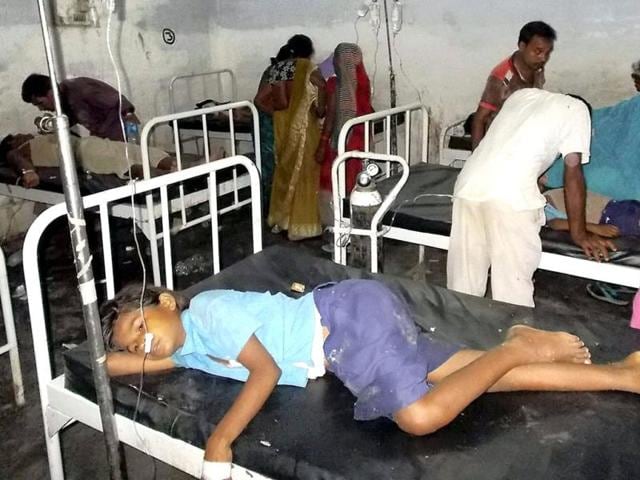Time to revise the menu
The mid-day meal scheme (MMS) was started in India in the 1920s but became popular after K Kamaraj and MG Ramachandran, both chief ministers of Tamil Nadu, blessed it. Charan Singh writes.
The mid-day meal scheme (MMS) was started in India in the 1920s but became popular after K Kamaraj and MG Ramachandran, both chief ministers of Tamil Nadu, blessed it. Its growing popularity caught the attention of former Prime Minister PV Narasimha Rao, who saw the potential to attaining higher attendance in schools. Similar schemes have been used successfully in the world, including in the US, Britain, Sweden and Malaysia.

In Bihar, 14 million children avail the scheme in more than 70,000 schools. In India, more than 11 crore children in 12 lakh schools benefit from the scheme that has nearly six lakh kitchen/stores, and 12 lakh cooks and helpers. The MMS costs the central exchequer about Rs 13,000 crore, annually.
The costs are shared between the Centre and states, in a ratio of 75:25 and 90:10 for different states and provisions under the scheme. The average total cost per child per school day, fixed in July 2012 is Rs 3.11 for primary and Rs 4.65 for upper primary students. The scheme has a provision of monitoring but available reports of such monitoring are scant.
A number of suggestions have been made by political and social pundits to improve the scheme over the years and especially after every dismal instance, the number of which, unfortunately have been many over the years. The criticisms range from procurement and quality of foodgrain and oil, pilferage, bad curry, to unhygienic conditions of cooking and water used.
Given the size of the country and the scale of the operation of the scheme, constant monitoring and accountability is essential. To be practical, to fix responsibility on an official in the national or state capital would not yield the desired results.
This responsibility of monitoring and accountability should be imposed on the officials of local bodies, who are closest to the school, be it the village panchayat or municipal corporation under the jurisdiction of which the school operates. Such local village-level officials would be more sensitive to the needs of local institutions. The 73rd and 74th Amendment to the Constitution that empowers the local bodies should be appropriately used.
Most importantly, there is a need for the constant evaluation of public sector schemes like this, which involve voiceless populations, especially the children of the poor. The evaluation needs to focus on the implementation of the proposed schemes as well as its utilisation by beneficiaries. The evaluation needs to be undertaken, not only within the government, but also by independent entities.
It seems, given that the government incurs substantial expenditure on such schemes, the time for an Independent Evaluation Office, accountable to the highest constitutional authority in India, above party politics, has come.
There is also a need to examine the reset on costs of such important schemes. If the published data is to be believed, despite high inflation, the last cost revision, on the basis of which allocations were made, was undertaken more than a year ago. The exercise of the revision of costs for such priority sector schemes needs to be examined more frequently. It is economical to undertake precautionary measures rather than incur costs after the episode in ex-gratia payments, medicines and riots.
Finally, there is a need to revisit the basics of the scheme. Given the geographical spread, it may be useful to consider a public-private partnership.
Children are the future of a country. We need to protect and nurture them so that such tragedies are avoided.
Food security should not become ‘food insecurity’ and such instances should not lead to lower attendance in schools. The intention of the government, despite its fiscal costs, could be good but sad episodes like this have an adverse impact on the country’s poor. Therefore, both the governments, central and state, need to take quick and visible steps to curb depressing incidents like the Bihar mid-day mean tragedy.
Charan Singh is Reserve Bank of India Chair Professor, Indian Institute of Management, Bangalore
The views expressed by the author are personal
Get Current Updates on India News, Lok Sabha election 2024 live, Election 2024 along with Latest News and Top Headlines from India and around the world.



